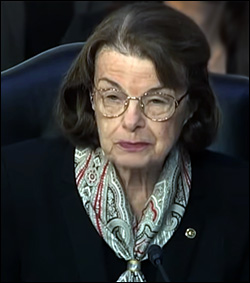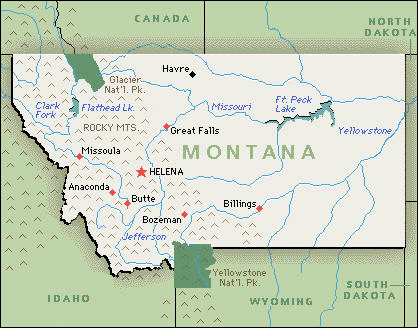By Jim Ellis — Friday, Jan. 27, 2023
Senate
California: Sen. Feinstein’s Cryptic Statement — Responding to a large number of Democrats making political plans based upon what they believe surrounds her impending retirement announcement, California Sen. Dianne Feinstein (D) made a statement Wednesday that at the very least strings along the people chomping at the bit to run for a new or different office.The only individual to announce for the Senate so far is Rep. Katie Porter (D-Irvine), but her move kicked off an array of candidates, six to be exact, already declaring for what they believe will be her open congressional seat, while others openly plan to enter the statewide race.
In a way of saying, “not so fast,” Sen. Feinstein said that she will make up her mind about the 2024 election “in the next couple of months.”
Montana: Sen. Tester’s Timetable — Sen. Jon Tester (D), answering reporters’ questions about whether he will run for a fourth term from Big Sky Country earlier this week, said he would make a decision by the end of the first quarter. Sen. Tester will face a difficult re-election in a state that has turned decidedly more Republican since he was re-elected in 2018. In that year, his victory margin was only 50-47 percent over Matt Rosendale (R) who was subsequently elected to the House in 2020.
Pennsylvania: Sen. Casey Clarifies Re-Election Status — Just after he was diagnosed with prostate cancer, Keystone State Sen. Bob Casey Jr. (D) indicated that he would be running for re-election once he recovers from his impending surgery. Clarifying his status yesterday, the senator said running will be dependent upon his health once he completes his cancer treatment, but his goal is to run again. Sen. Casey said he is not yet ready to commit to launching another campaign.
House
CA-45: Rep. Steel (R) Draws Different Challenger — Golden State Rep. Michelle Steel (R-Orange County), fresh from a 52-48 percent victory in a new 45th District that contained only 16 percent carryover from the 48th District to which she was originally elected in 2020, has drawn a potentially new opponent for 2024.
Garden Grove City Councilwoman Kim Bernice Nguyen (D), a twice defeated county supervisor contender, announced her congressional candidacy Wednesday in a district that is 41.4 percent plurality Asian and over 72 percent minority. Community College Trustee Jay Chen (D), who held Rep. Steel to her four-point win in a district that contains a five-point Democratic lean according to the FiveThirtyEight data organization, is also a potential candidate, but has not yet formally decided whether he will seek a re-match.
Governor
Mississippi: Gov. Reeves Faces GOP Challenge — With the Feb. 1 candidate filing deadline fast approaching for the 2023 governor’s race, incumbent Tate Reeves will not have a free ride in the Republican primary. Dr. John Witcher, who is an anti-Covid vaccination physician, formally declared his candidacy Wednesday. This could be a harbinger to Gov. Reeves getting a stronger GOP opponent, however, such as Secretary of State Michael Watson who has still not ruled out entering the governor’s contest. Public Service Commissioner Brandon Presley is the leading Democratic candidate.



 By Jim Ellis
By Jim Ellis